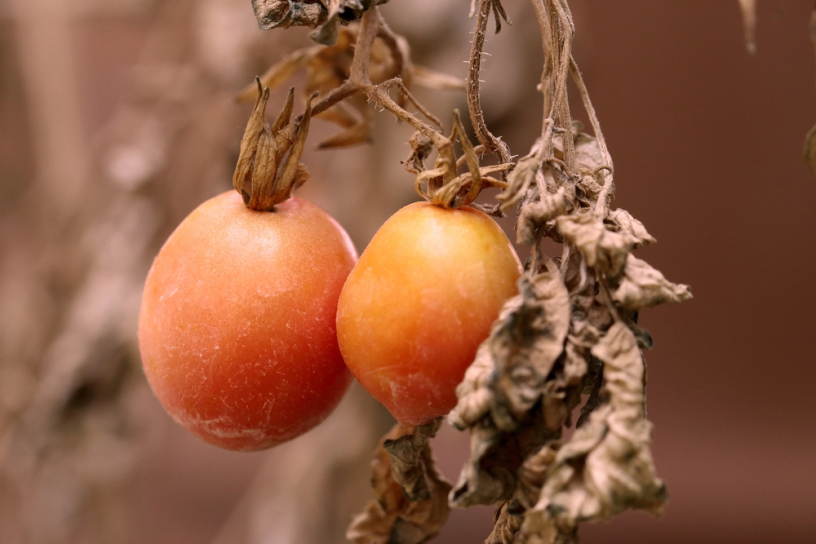“My counsel for you is simple and straightforward: just go ahead with what you’ve been given. You received Jesus Christ, the Master, now live Him. You’re deeply rooted in Him. You’re well-constructed in Him. You know your way around the faith. Now do what you’ve been taught. School’s out, quite studying the subject and start living it! And let your living spill over into thanksgiving.” (Colossians 2:6-7 MSG)
My mentor-friend pointed to her tomato plant with parental pride: “Look, this branch broke off from the vine and I stuck it back in the dirt and it’s re-rooted!” Her joy was evident as I surveyed the sickly-looking branch thrust into the dirt. “And look, it’s going to produce fruit!” To my astonishment, a nearly-ripe tomato clung heavy to the withered branch, defying all odds.

There’s this thing about being a wife, a mother, a woman: we want roots. We long for security and familiarity, a place to settle down for the long haul, a home to establish routines and traditions. We want to mark our child’s growth on the kitchen doorframe year after year, we want to drink coffee on the front porch and watch the seasons parade by with regular rhythm. Our female flesh-nature resists upheaval. If I’m being honest, I’m of an age where change is more daunting than exciting, more exhausting than invigorating. I’m struggling with being snipped off the vine again and shoved back into the dirt, demanding a new root system in order to survive, let alone thrive.
Yet for me, this is the life of faith the Father has required. Maybe it’s hereditary; my mother was Methodist minister who’s district transplanted our family every 4-7 years. Maybe it’s my husband’s call, requiring constant upheaval and I’m just part of the package. I’ve wondered about Sarah, Abraham’s wife. Did she resent her nomadic lifestyle the way she resented her empty womb? Did she long for a forever home and wooden roof over her head? Or did she learn to surrender? Did she see her life as a grand adventure with an Almighty God?
Perhaps it’s hereditary or maybe my husband, but maybe the Lord knew my propensity for settling. He’s sovereign like that, well-attuned to the tendencies of our flesh. Maybe He knew I’d tend to cling to the dirt and forget that this earth is passing away. Maybe He’s over and over reminding me that He alone is the sacred soil to push my roots deep down into. Maybe, in moving, we learn to never relax our grip on Him. When we respond in obedience to His instruction (across the country or across the room) we let go of the terra firma just a bit more and cling to Him more tightly. Maybe all this uprooting is intentional?
The way I see it, the aforementioned tomato plant had two options when it was broken off and shoved in new dirt: it could refuse to try and die OR it could do the work of digging new roots and thrive. We face this choice as well, when God calls us out of comfort zones and familiarity, when He tugs us away from routines and connections. We can resent the breaking and resist the transplant, we can whither up and blow away. Or we can dig deep again, bringing human effort to divine agenda and maybe, just maybe, our transplanted life will continue to produce fruit.
O Lord, our flesh cries out for roots. We want to make long-term plans in a short-term place. Forgive us as we are concerned with today and You are consumed with eternity. If uprooting is what is required of us to keep on Kingdom task, may we cooperate. Break us off and shove us down in the dirt again. Give us guts to dig in and grow, and by Your grace and power, may we continue to produce fruit. Amen.